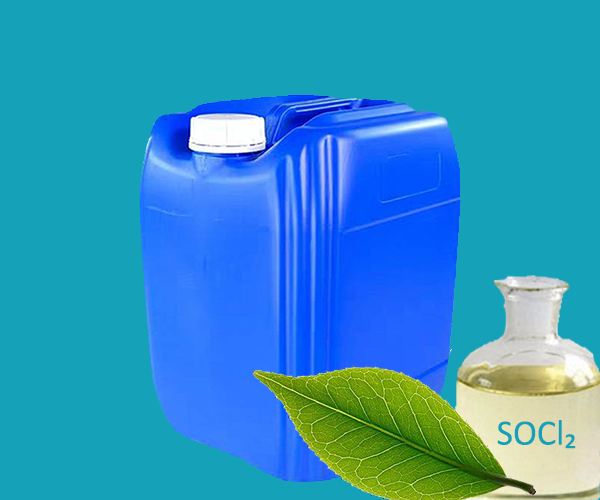Thionyl chloride (SOCl2) is a colorless to pale yellow liquid with a pungent odor. It is an important chemical with a wide range of applications in organic synthesis and chemical production.
Thionyl chloride is a chemical that has a variety of uses, mainly due to its strong chlorination and dehydration capabilities. Here are some of the main uses of thionyl chloride:
1. Organic synthesis: Thionyl chloride is used as a chlorinating agent in organic chemical synthesis, especially in the production of pesticides, dyes, pharmaceuticals, and other organic compounds. It can react with alcohol to form chlorinated alkyl ether, phenol to form phenol chlorine, and amine to form amine chloride.
2. Dehydrating agent: Thionyl chloride has a strong dehydrating effect and can be used to remove water from compounds, so it is used as a dehydrating agent in some chemical synthesises, such as the formation of olefins in the dehydration reaction of alcohols.
3. Chlorinating agent: thionyl chloride can react with hydroxides in organic matter to chlorinate it, so it acts as a chlorinating agent in the synthesis of chlorinated organic matter.
4. Pesticide production: thionyl chloride is used as an intermediate in pesticide production for the synthesis of certain pesticide active ingredients.
5. Drug synthesis: thionyl chloride is used in the pharmaceutical industry as an intermediate in the synthesis of certain drugs.
6. Dye and pigment industry: Thionyl chloride is used in the production of certain dyes and pigments, especially in the synthesis of specific organic pigments.
7. Photoresist production: In semiconductor manufacturing, thionyl chloride is used in the production of photoresist, a key material used in the manufacture of integrated circuits.
 English
English Español
Español Português
Português Français
Français Deutsch
Deutsch Русский
Русский 中文
中文 日本語
日本語
